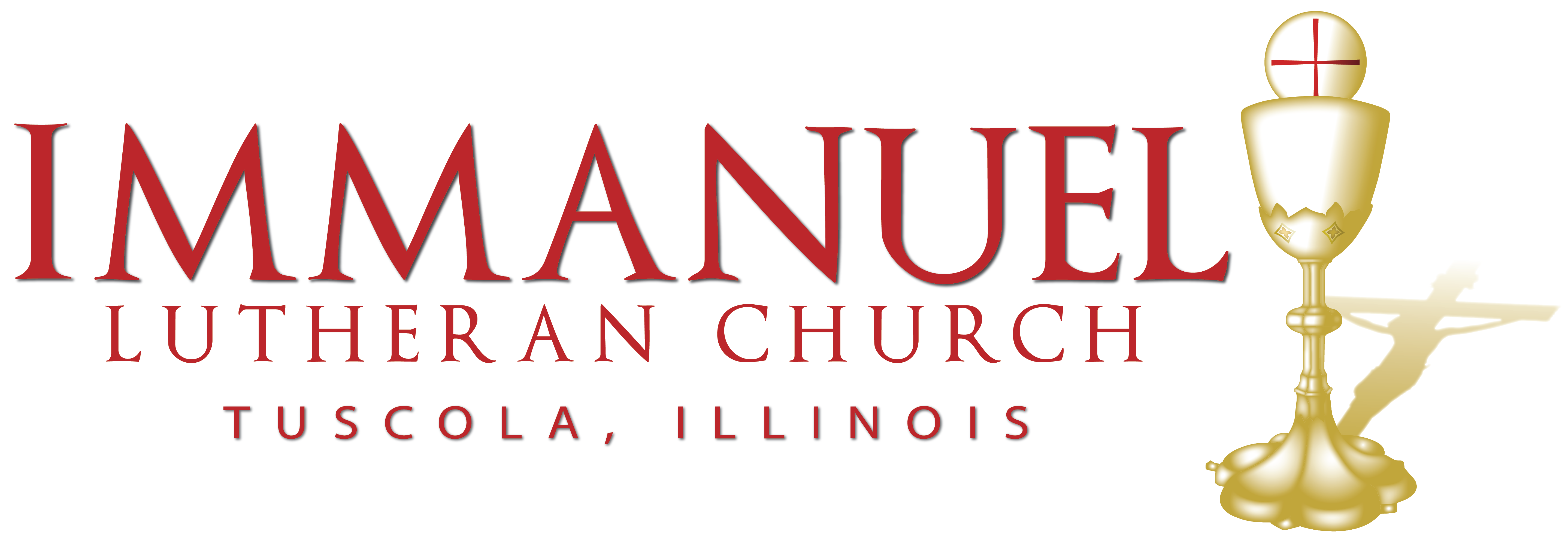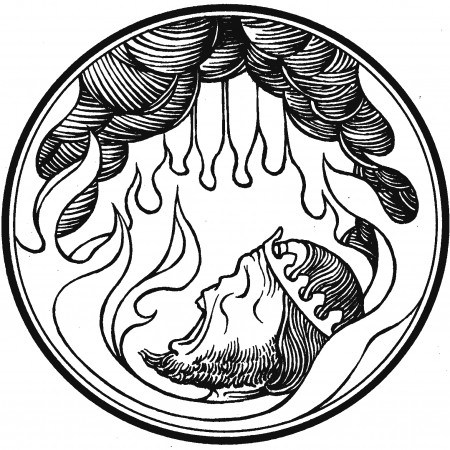The First Sunday after Trinity
Luke 16:19–31
+ IN NOMINE IESU +
We like to associate and tend to identify ourselves with Lazarus. After all, he is at rest with all the saints before the throne of God in Abraham’s side. The reality, however, is that we are more like the rich man than we’d care to admit. This is the case in two ways: first in what we consider to be a blessed life, and second in our lack of trust in the Word of God.
The rich man believed he had God’s blessing because he was rich, because he had material possessions. He also believed that Lazarus was cursed because Lazarus did not. Now we are nearly as crass as that, but we have a similar mindset. The difference is one of degree not substance. For even though we would never say that God has cursed someone because they do not have material things or that they aren’t wealthy as we all are, we do tend to think that God’s blessings extend only to material and physical things, to the things of this life and this world. In other words, would we consider ourselves still blessed by God if we were like Lazarus? I don’t think we would. We would probably ask why God has cursed us in this way. And that’s the problem. We tend to consider only the material and physical things of this life and world to be God’s blessings. Another way to get at this is to ask this: When was the last time we prayed in thanksgiving that God gave us faith through Holy Baptism? Or that He sustains us in this faith through the forgiveness of our sins in the Lord’s Supper? How often do we find ourselves praying with Luther as he taught us in his great hymn, A Mighty Fortress, “And take they our life, Goods, fame, child, and wife, Though these all be gone, Our vict’ry has been won; The Kingdom ours remaineth.” In other words, we downplay the real blessings of God—Faith, Grace, Forgiveness of Sins, His Holy Word, His Blessed Sacraments—taking them for granted.
This is the rich man’s problem. It is not that he is wealthy. It’s that he puts his trust in his wealth, and ends up scorning the greater blessings of God, which are eternal things. And we do the same things when ponder to ourselves what good is God’s gifts of grace, faith, forgiveness of sin when we confront illnesses or are living pay check to pay check, etc. And the reason the rich man did this, and we also, is because he and we do not believe the Word of God; we do not listen to Moses and the Prophets. For Jesus said, “For what does it profit a man to gain the whole world but forfeit his soul” (Mark 8:36)?
But it’s worse than that. Not only do we fail to listen to Moses and the prophets when it comes to what are truly his blessings, we also fail to listen to them when it comes to what are truly curses to us. We call evil good. We no longer consider it a sin for a man and a woman to act is if married when they are clearly not. We do not consider it a sin to hold back our offerings from church so that we can have what we want or to make a point. We do not consider it a sin to miss out on the blessings God gives in His Word and Sacrament so that we can enjoy the things of this world. Whether it is for the sake of convenience or thinking that it’s old fashioned, the Word of God still endures forever. It still says what it says, and it is our duty to thank and praise, serve and obey the one who gave it
The beggar Lazarus has nothing to offer God and doesn’t seem to be blessed by God. The rich man seems to be a great man and seems to have God’s blessing, yet when they die the rich man goes to Hell and Lazarus goes to Abraham’s bosom because Lazarus trusted in the promises given by Moses and the prophets.
Lazarus represents all Christians. He suffers as we all suffer in this life and he lives by faith. He trusts the promises in Moses and the prophets about the Messiah and God’s love for him. His sorrows don’t save him or impress God, rather God uses his sorrows to keep him dependent. The beggar learns to trust in God and to wait on Him rather than trusting in riches, or his own ability to make happen what he thinks ought to happen.
So while the rich man is rich, and Lazarus is poor, while the rich man feasts sumptuously everyday and Lazarus longs for the scraps from the rich man’s table, while the rich man is covered in purple and fine linen, and Lazarus is covered in sores … while all this is the case, Lazarus is not without some earthly comfort. For Jesus adds this, “Moreover the dogs came to lick his sores.” The dogs, who know their master, come as God’s ministers to give what comfort they can, on top of the comfort that Lazarus already has in the Word and promises found in Moses and the prophets.
The point is that God would not leave us in abject sorrow. He reaches out to us. We have Moses and the prophets. We should be comforted by their promises. We should have hope. And He sends the Gospel to us, the cleansing and life-giving words of Life, through the Office of the Holy Ministry.
I have given Holy Communion to people on their death beds. So far, it didn’t heal any of them. But many of them, most of them, were brought to tears by it, were thankful and comforted by it. They did not think it was a small thing. It might not have been that great of medicine for their bodies, but it was the medicine they most needed for their bodies and souls to strengthen and keep them in the one true faith. It prepared them to pass over and to go to Abraham’s side because it brought to them the risen Body and Blood of Jesus Christ and washed away all their sins.
I do not say this to belittle your sorrows. Crosses are always custom-made and no one gets out of this unscathed. Neither are we completely innocent in what we suffer. We are not Job. We have chosen, time and time again, to ignore God’s clear Word on the things of this world that are detrimental to us. But no matter what your circumstances, your addictions or abuse or neglect, or what has been done to you, God does not leave you in your sorrows without comfort. Read the Bible and come to Bible class. Pray. Join the brethren in prayer at the Services and join them for mutual consolation. Come to Confession and come to the Sacrament of the Altar. For God’s purpose in keeping you close to Himself in suffering is in order to comfort you. As St. Paul wrote, “For I consider that the sufferings of this present time are not worth comparing with the glory that is to be revealed to us” (Rom 8:18) in the day of our Lord Jesus Christ. Friends, that day is coming. In the meantime, come and be comforted with the promise of Moses and the prophets, with the risen and living body and blood of Jesus, which takes away your sins. That will see you through, just as He and they promised. Amen.



0 Comments